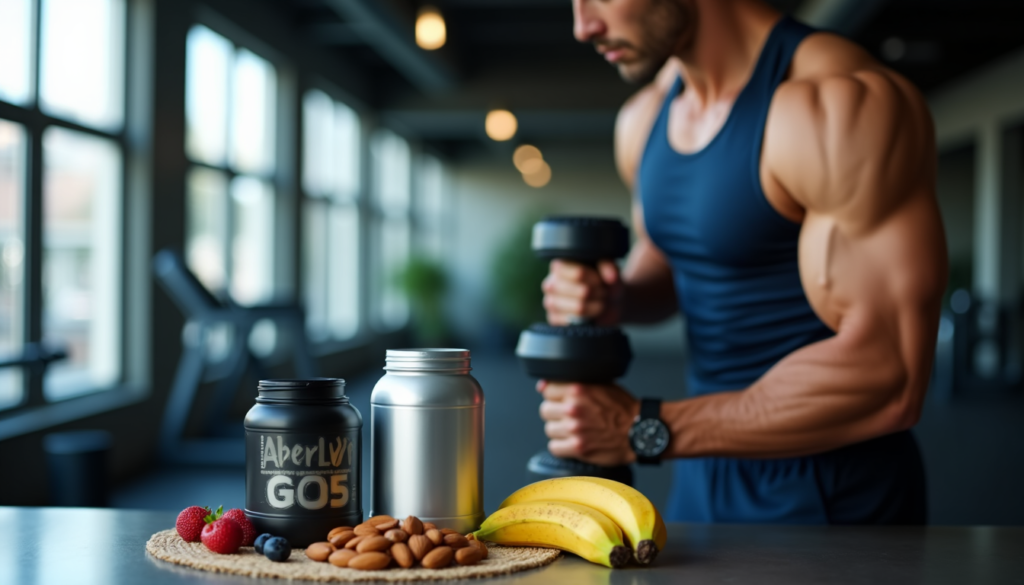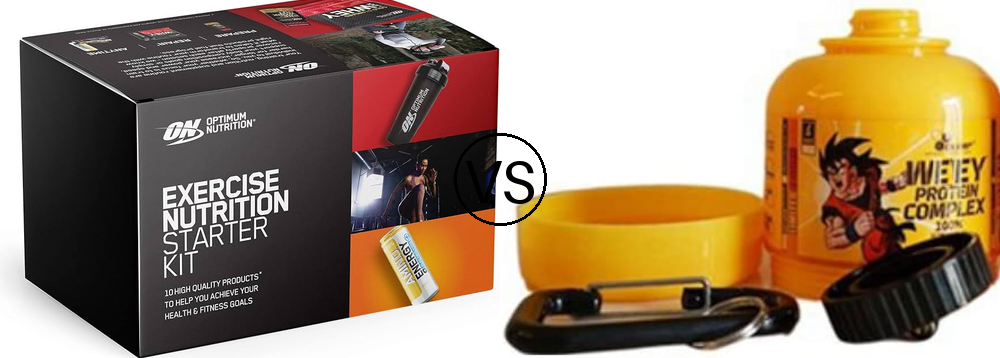Many fitness enthusiasts struggle to choose between pre-workout supplements and protein powder. The choice becomes even more challenging for both beginners and experienced gymgoers. These supplements serve completely different purposes in your fitness journey.
Pre-workout supplements enhance your energy, focus, and performance during exercises. They contain specific ingredients like caffeine (100–400 mg per serving) and beta-alanine. Protein powder takes a different approach, and we focused on muscle recovery and growth. It typically delivers 20–50 grammes of protein per serving. The difference between these supplements is significant, especially when you match them with your fitness goals. This piece will help you make a smart choice based on your training needs and objectives.
Understanding Pre-Workout and Protein Powder Basics
Pre-workout supplements and protein powders play different roles in your fitness experience. Pre-workout formulas help boost energy and athletic performance. They contain ingredients that improve your training session.
What Pre-Workout Does to Your Body
Pre-workout supplements boost performance and start working 15-45 minutes before exercise. The stimulants in these formulas increase energy levels and mental alertness. Most pre-workouts contain caffeine between 150 and 300 mg per serving. These supplements also have ingredients that improve blood flow and help your muscles work longer during intense training sessions.
How Protein Powder Works
Protein powder helps build and repair muscles. These supplements pack concentrated protein sources that deliver 20 to 30 grammes per serving. Quality protein powders contain all nine essential amino acids that your body needs to repair and grow muscle. Whey protein works quickly in your body, which makes it great for muscle development.
Key Ingredients Comparison
Both supplements have different core ingredients based on what they need to do:
- Pre-workout typically contains:
- Beta-alanine (found in 87% of products)
- Caffeine (86% prevalence)
- Citrulline (71% presence)
- Taurine and tyrosine
Protein powders focus on protein sources like whey isolate, concentrate, or plant-based alternatives. These supplements also contain nutrients like lactoferrin and immunoglobulins. You should take 25–50 grammes of protein powder daily. Pre-workout serving sizes change based on how well you handle them and what’s in the product.
Timing Your Supplements for Maximum Results
The right timing of supplements will maximise their effectiveness. Your workout results improve when you know the best time to take each supplement.
Best Time to Take Pre-Workout
You should take pre-workout supplements 30 to 45 minutes before exercise. The active ingredients will peak in your bloodstream right when you need them. Caffeine, which most pre-workout formulas contain, needs 30 to 60 minutes to reach maximum concentration. This timing helps your energy levels line up perfectly with your training session.
Pre-workout might work better on an empty stomach for morning workouts. Food can slow down the supplement’s absorption and reduce its effects. People who train later should think over their caffeine sensitivity because it could disrupt their sleep patterns.
When to Consume Protein Powder
Your specific goals determine the best time to take protein powder. Research shows several ideal times for protein intake:
- Post-workout: Within 60 minutes after exercise
- Pre-sleep: 40 grammes before bedtime to support overnight muscle synthesis
- Morning: With breakfast to stimulate muscle protein synthesis
- Between meals: To maintain steady protein levels throughout the day
The traditional “anabolic window” concept has evolved. New studies show that taking protein anytime within two hours after exercise works just as well for muscle growth. Your muscle protein synthesis jumps by about 25% when you spread protein intake evenly throughout the day instead of loading up at lunch and dinner.
Morning workouts in a fasted state need immediate protein intake after training. Remember, your total daily protein intake matters more than exact timing to reach your fitness goals.

Matching Supplements to Your Fitness Goals
Your specific fitness goals determine which supplements you should choose. Learning about how different supplements work with various objectives helps you get better training results.
For Muscle Building
Building muscle needs enough protein – about 1.4 to 2.0 grammes per kilogramme of body weight each day. Whey protein isolate leads the pack as the best choice because it provides all essential amino acids with high leucine content. Beta-alanine and other ingredients in pre-workout supplements help you train longer and harder to support muscle growth.
For Weight Loss
Different supplements support weight management in various ways. Protein powders help you feel full and protect your muscle mass during calorie-restricted diets. These supplements contain:
- Thermogenic compounds that speed up metabolism
- L-carnitine and similar fat-burning ingredients
- High-protein formulas with minimal calories
For Athletic Performance
Athletes need specific nutrients to perform their best. Pre-workout supplements boost oxygen and nutrient delivery to muscles. Research shows that protein from meat and dairy works better than plant-based options for strength gains. BCAAs also play a significant role in reducing muscle soreness and fatigue.
For Recovery
Muscle repair and growth are the foundations of recovery supplements. Whey protein absorbs faster than other proteins, which makes it perfect for post-workout recovery. Your body uses protein better when you spread it throughout the day, which leads to a 25% boost in muscle protein synthesis. The best results for muscle recovery come from eating 20–30 grammes of protein within 30 minutes after exercise.
Can You Take Pre-Workout and Protein Powder Together?
You can safely mix pre-workout and protein powder, but timing matters if you want them to work well. Research shows that 54% of people who regularly use pre-workout supplements experience side effects when they take more than the recommended amount.
Benefits of Combining
These supplements work great together and give you several advantages. A study proved that taking protein before and after workouts helped build muscle better than just working out. Here are the main benefits:
- Improved muscle protein synthesis
- Faster nutrient delivery to muscles
- Better workout intensity
- Efficient supplement routine
Taking protein with pre-workout supplements helps your muscles recover better through increased blood flow and nutrient delivery. Studies show that whey protein boosts muscle protein synthesis better than milk alone, no matter how it’s processed.
Potential Risks
You should pay attention to a few things when mixing these supplements. Caffeine, which most pre-workout supplements contain, might affect how well your body absorbs protein. You should wait at least 30 minutes between taking pre-workout and protein supplements.
Stomach discomfort can be an issue if you take too much protein before intense workouts. Research shows that getting your nutrient timing right around workouts is vital for the best performance and recovery.
Mixing these supplements has its benefits, but taking too many stimulants can be risky. Most pre-workout formulas pack a lot of caffeine, which might make you jittery or mess up your sleep when combined with protein supplements. Studies suggest that your total daily protein intake matters more for muscle strength and size than exact timing.
Start with small doses to see how your body reacts. On top of that, it helps to choose high-quality supplements tested for purity and potency. Your fitness goals and body’s response should guide your decision to combine these supplements.
Conclusion
Pre-workout supplements and protein powders can be your best allies in your fitness experience. Each plays a different role—pre-workout formulas give you energy and boost performance during exercise. Protein powders help your muscles recover and grow after you train.
Your fitness goals will determine which supplement works best for you. Athletes who want to gain strength can benefit from both supplements. They can take pre-workout to train harder and protein powder to help muscles recover. People who just want to build muscle should focus on protein supplements and make sure they get enough throughout the day.
Safety matters most when you mix these supplements. Pre-workout and protein powder work well together, but timing is key. You should take them at least 30 minutes apart. This helps you get the most out of each supplement and avoids stomach issues.
The best way to use supplements matches your fitness goals, daily routine, and body’s needs. Don’t just follow what others do; watch how your body responds and makes changes. This will help you get the best results from your supplements and support your long-term fitness goals.


